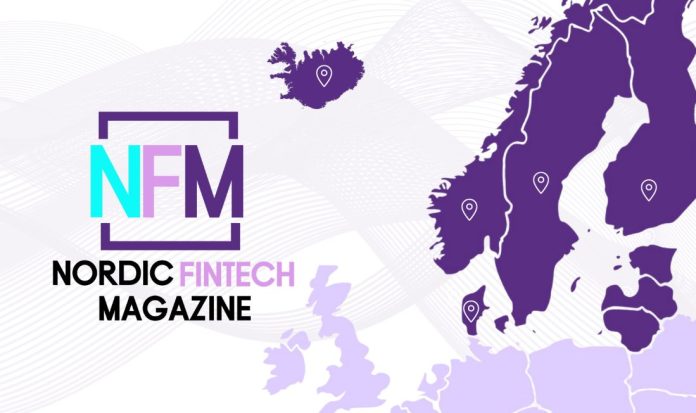The Nordic countries have emerged in fintech with each country’s distinct strengths and innovations. From Sweden’s unicorn factories to Norway’s resilient banking technologies, Finland’s vibrant startup ecosystem, Denmark’s robust digital infrastructure and beautiful products, and Iceland’s unique challenges and successes — each nation presents a fascinating piece of the larger Nordic fintech puzzle.
Dive into this overview to discover fintech dynamics, challenges, prevailing trends, and prospects across these northern European nations.
DENMARK
Central to Denmark’s fintech narrative is its tight-knit community. With mutual trust-binding fintech founders, the established financial sector, and other stakeholders, Denmark enjoys a rapid knowledge-sharing ethos.
“Having a community that trusts each other creates faster pace knowledge sharing, fosters an experience-sharing culture, which in the end creates higher speed of execution for the sector as a whole,” says Simon Schou, Chief Innovation Officer at Copenhagen Fintech, a focal point in the Danish fintech ecosystem with back up from established financial industries, supporting industries, startups, investors, research institutions and policymakers.
Denmark shines brightly for both domestic and international investors. Notwithstanding market perturbations due to COVID-19 and geopolitical fluxes, Denmark’s fintech realm has lured tier-1 international venture funds. Notably, 2022 saw the inception of Denmark’s maiden fintech-specialized venture fund, Upfin, earmarking €30 million for early-stage Nordic fintech ventures.
“Having a community that trusts each other creates faster pace knowledge sharing, fosters an experience-sharing culture, which in the end creates higher speed of execution for the sector as a whole,”
Simon Schou, Chief Innovation Officer at Copenhagen Fintech

“There are no specific subsectors of fintech that currently lead significantly in funding, but a strong funding signal is how close you are on product-market-fit. It is challenging to fundraise simply on story-telling nowadays; you must also showcase significant client growth over a period of time,” Schou adds.
Navigating Growth: A Delicate PhaseAccording to Schou,
Product-market fit and scaling are essential parameters for growing startups: “It’s a universal struggle for most startups, especially European ones; these challenges are amplified by cultural nuances when expanding to new terrains.”
As these startups flourish, they grapple with understanding client cultures in uncharted markets and the perennial challenge of talent acquisition.
“A deep-seated ‘born global’ ethos is somewhat lacking, nudging startups to align with astute international VCs for a grand global leap,” says Schou.
Another Denmark-specific hurdle is the presence of numerous small and medium-sized banks operating on jointly owned data centres. Schou explains that this intricate landscape sometimes complicates partnerships for fledgling fintech ventures.
“Forecasting the Danish fintech trajectory, two arenas seem ripe for disruption: climate fintechs and the Web3/metaverse space. The intertwining of AI, Big Data, tokenisation, and Blockchain within the Web3 and Metaverse is poised to redefine financial services,” Schou says.
While trading applications are just the tip of the iceberg, Denmark’s fintech ecosystem appears ready to plunge into broader financial service innovations.
ICELAND
Amidst the Nordic landscape, Iceland emerges with a distinct fintech ecosystem. Its relatively small size, approximately 400,000 people, juxtaposed with a dynamic, innovative spirit reminiscent of its Nordic neighbours, renders it a unique hotspot for fintechs.
“While Iceland’s compact nature ensures closer connectivity and streamlined product testing, it also poses challenges. Fewer market players make predictions a tricky endeavour. However, this constraint becomes Iceland’s strength, propelling Icelandic firms to gaze globally, emboldened by affiliations with prominent Nordic clusters,” says Gunnlaugur Jónsson, CEO of Reykjavik Fintech Cluster.
Iceland faces regulatory dilemmas. Adapting European rules can take a long time because only a few people work on it. They often follow what Nordic countries, mainly Denmark, do. A case in point is the slow roll-out of independent payment solutions, even with PSD2 in place.
Startup growth is a tightrope walk.
Iceland is seeing more partnerships between regular banks and new FinTech companies. Many banks are investing and working with these tech companies, starting a clear trend toward closer ties. Like banks worldwide, Icelandic banks aim to provide a wide range of services.
“While they face challenges due to their smaller structure, they also benefit from being more flexible and making decisions faster. This creates an interesting backdrop for future growth and change,” says Jónsson
“Fewer market players make predictions a tricky endeavour. However, this constraint becomes Iceland’s strength, propelling Icelandic firms to gaze globally, emboldened by affiliations with prominent Nordic clusters,”
Gunnlaugur Jónsson, CEO of Reykjavik Fintech Cluster.

Start-ups face several hurdles as they grow. Staying flexible during fast expansion, especially in team dynamics, is crucial. Additionally, breaking into the market and selling their products can be complex. Some start-ups also deal with the classic “chicken and egg” problem, especially if their value becomes more apparent as they grow.
Going forward, Icelandic banks stand to gain significantly by taking a more open approach, weaving fintech innovations into their online services. Beyond the regular banking landscape, blockchain in Iceland shows immense promise.
“While it’s in its infancy and sometimes seen as unconventional, its ability to transform the nation’s daily financial dealings is vast. Blockchain introduces a level of openness in banking that outpaces any existing Icelandic regulations. If our banks embrace this, the future is rich with possibilities,” says Jónsson.
FINLAND
While Finland is known for its strict interpretation of EU regulations, this rigidity offers stability and predictability for fintech firms. The regulatory environment, though stringent, can be an advantage for companies looking to operate in a stable and predictable framework.
But when it comes to startup, it adds layers of complexity. The country’s stringent interpretation of these regulations often prompts businesses to consider more lenient European jurisdictions for licensing and operations.
Apart from that, funding is the primary challenge in the ecosystem. Those with revenue streams have weathered the storm, albeit at the expense of valuations compared to previous years.
“Our track record of startup successes and reasonable valuations makes it a lucrative choice for international investors.”
Janne Salminen, CEO at Helsinki Fintech Farm.

“However, early-stage companies still in the process of finding their product-market fit face headwinds amidst the current market dynamics. This slowdown isn’t unique to Finland but mirrors the global trend,” says Janne Salminen, CEO at Helsinki Fintech Farm.
Finland’s banks, renowned for their innovative spirit, have been included in the fintech revolution. While they prioritise revamping their legacy platforms and adapting to ever-evolving regulations, there’s been a marked interest in embracing fintech innovations.
“An exemplary initiative in this space is DIAS. Here, major Finnish banks partnered with a startup, aiming to digitise housing shares via blockchain,” Salminen says.
From local legends to global game-changers
Finland boasts a robust startup ecosystem, mainly active in the early stages. Given its small market size, the country often looks beyond its borders to foreign investors for larger funding rounds.
“Our track record of startup successes and reasonable valuations makes it a lucrative choice for international investors. However, the challenges faced by the global venture capital market have prompted local startups to tread cautiously, focusing on sustainability,” Salminen explains.
The future shines bright for the Finnish fintech sector, with several areas earmarked for potential growth. Innovations considered standard in Finland, like digital accounting and invoicing, are deemed cutting-edge in markets like Central Europe. Such areas offer Finnish startups immense opportunities to globalise their solutions, bringing their expertise to untapped markets.
The Finnish strength lies in product development and engineering. Yet, startups often overly focus on these aspects. The real challenge arises when they transition from product refinement to aggressive market entry, a shift many find daunting.
SWEDEN
Sweden’s fintech landscape is a marvel of interplay between innovators, government bodies, established finance houses, and young startups. The ecosystem thrives on a unique culture of collaboration, ensuring a rapid trajectory towards success.
“The cycle of talent development is constant, with professionals moving seamlessly within the financial industry, many evolving into the next generation of entrepreneurial pioneers,” says Anna Blyablina, co-founder and chairwoman of the board at Stockholm Fintech.
A distinct advantage that Sweden enjoys is its tech-savvy populace. As one of the world’s earliest tech adopters, Swedish consumers are enthusiastic about engaging with innovative providers. This acceptance from consumers offers B2C fintech startups an opportunity-rich platform to gain solid market traction.
“In essence, the challenges are fostering increased collaboration between traditional and modern finance entities. While fintechs view these collaborations as revenue generators, traditional institutions see them as gateways to strategic advantages,”
Anna Blyablina, co-founder and chairwoman of the board at Stockholm Fintech.

However, the local fintech market is saturated with innovative startups and incumbents.
“This competition makes it challenging for new entrants to differentiate themselves and capture significant market share,” Blyablina says.
That forces many fintech startups to aim for broader global markets where they often grapple with complex regulatory terrains, diverse cultures, and operational dynamics.
Collaborations and a pledge to sustainability
Despite these challenges, the traditional finance industry in Sweden has shown commendable adaptability. Faced with regulatory pressures, these traditional entities have found allies in fintechs, which craft regulatory tech solutions that simplify compliance.
“In essence, the challenges are fostering increased collaboration between traditional and modern finance entities. While fintechs view these collaborations as revenue generators, traditional institutions see them as gateways to strategic advantages,” Blyablina says.
The nation boasts a strong reputation, producing startups rivalling Silicon Valley in unicorn statistics. This success, especially in the fintech realm, has caught the eye of both local and international investors. Yet, trends in 2023 suggest a dip in deals, mirroring a broader European movement with a significant focus on growth-phase companies eyeing expansion.
“Mergers and acquisitions are on the rise. Noteworthy transactions include Sambla Group’s acquisition of MyMoney and Francisco Partners’ acquisition of Macrobond. Parallelly, there’s a surge in fintech startups aiming for the Sustainable Development Goals (SDGs), reflecting Sweden’s commitment to sustainability,” Blyablina says.
The future radiates promise. Sweden’s advanced digital society continually presents opportunities, especially in the financial sector, according to Blyablina. As the world battles climate change, the finance sector in Sweden is harnessing fintech to direct investments towards sustainability, aligning with the Paris Agreement. This evolution reaffirms the nation’s forward-thinking approach, laying the groundwork for a fintech industry deeply committed to global Sustainable Development Goals.
NORWAY
One of the defining features of Norway’s fintech landscape is its collaborative spirit. Norway’s tight-knit business environment encourages synergies between fintech startups, established financial institutions, investors, and research bodies.
The collaboration results from Norway’s world-class payment system, which stands out as highly efficient. Leading this charge is Vipps Mobile Pay, a predominant player in the Nordic region known for its swift and straightforward payment solutions.
“The sense of collaboration is rooted in the longstanding tradition among Norwegian banks and insurance companies to work together, forging a conducive atmosphere for innovation,” says Bent Gjendem, CEO of the Norwegian Fintech Cluster NCE Finance Innovation
Established half a decade ago, Finance Innovation has received widespread backing. This national fintech cluster draws support from stakeholders, including traditional financial institutions, Innovation Norway, regulatory bodies, startups, and other ecosystem participants.
From Hurdles to Heights
However, the journey is challenging. Fintech startups in Norway often need more access to capital, reduced regulatory support, and a comparatively lower focus on innovation, especially when benchmarked against Sweden and Denmark. These constraints can pose hurdles for scaling ventures.
Yet, the traditional finance sector in Norway is very much aligned with fintech advancements.
“The sense of collaboration is rooted in the longstanding tradition among Norwegian banks and insurance companies to work together, forging a conducive atmosphere for innovation,”
Bent Gjendem, CEO of the Norwegian Fintech Cluster NCE Finance Innovation

“Financial institutions are readily entering partnerships, investing in fintech startups, launching incubators and accelerators, and collaborating in initiatives like the fintech sandbox. This collective approach culminated in the launch of the Norway Fintech Festival, which was met with significant acclaim,” Gjendem says.
On the investment front, Norway’s reputation as a trustworthy nation producing world-class products positions it attractively for both local and international investors. Being an open, small economy with a deep-rooted history in exports further boosts its allure.
Norway seems poised to leverage the AI revolution in fintech. The success of AI, particularly within financial institutions, hinges on comprehensive datasets and reliable data-sharing mechanisms. Given its strengths, Norway is well-placed to assume a pivotal role in this arena.


